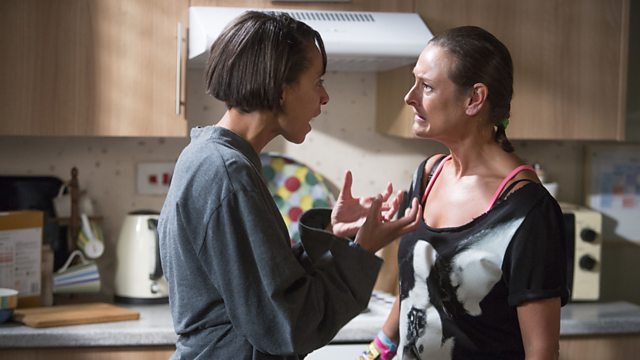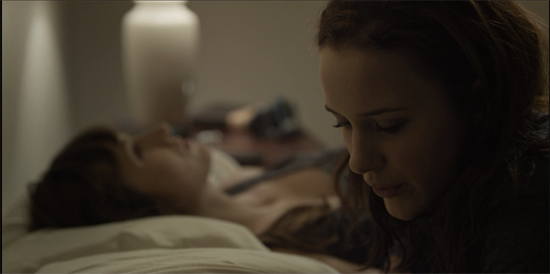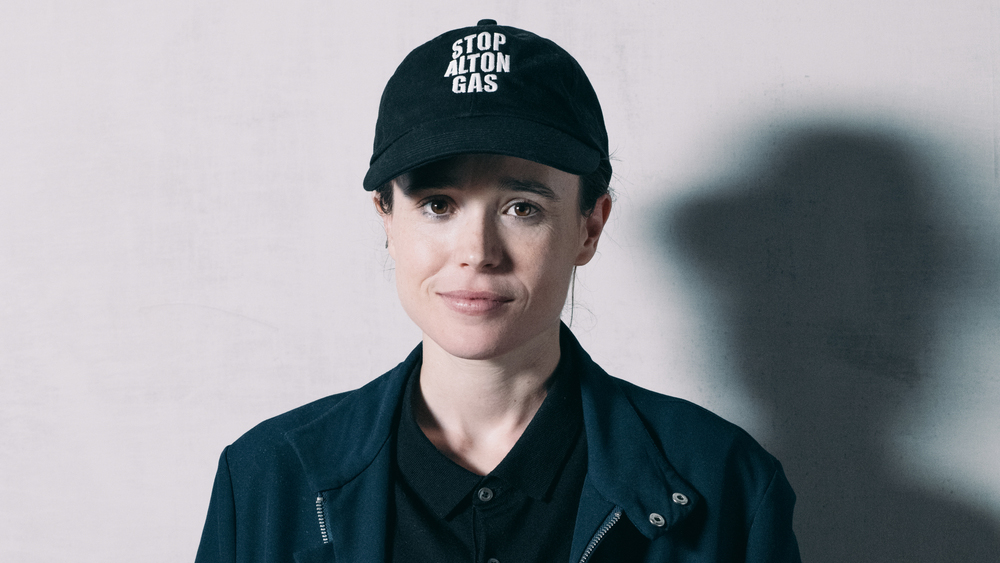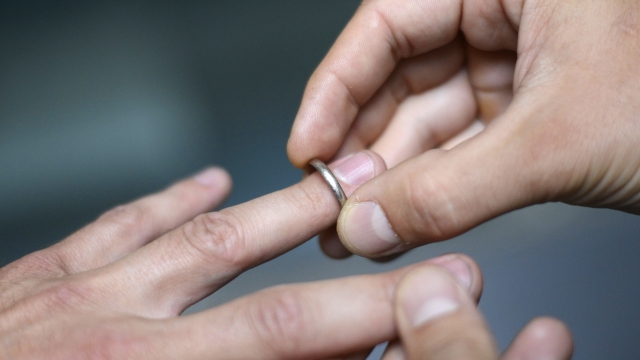I’ve been in my fair share of bad relationships over the years. Everyone deals with cheaters, clingers, and distant heartbreakers at least once or twice in their dating life, but hopefully most of us won’t have to deal with a seriously bad relationship – one in which someone gets physically or psychologically hurt because of the other person’s anger. These types of relationships cause serious damage for years to come, and to those looking in from the outside, the answers seem so clear.
Get out.
You deserve better.
What do you see in him/her?
But when you’re actually stuck in one of these Seriously Bad Relationships – ones that are built on abuse and control, rather than love and respect – getting out isn’t the easiest option. Often, the abuser will tell the victim that they’re already in the situation they deserve – that the two of them are perfect together, they were made for each other, maybe they were even destined to be together.
To the victim, it’s easy to look past the flaws in their partner – such as violent outbursts – because they know that the good days will make up for the bad. And then one day, the good days stop coming, but the victim keeps waiting, because it can’t always be like this. It’s often easier to stay in a bad situation than to get up the courage to leave it, and potentially escalate things.
If you’re struggling with the complex set of emotions that comes after leaving an abusive relationship, I’m here for you. All of KitschMix is here for you. And we have a few tips to help you move forward into a brighter chapter of your life.
Identify what you’re really afraid of.
Are you afraid that your partner will abuse you further if you leave? Are there kids involved in the situation, who may get hurt if you walk out? Are you afraid that you won’t be able to make ends meet, or that you’ll meet a new partner who treats you even worse? Are you afraid you’ll never find love again?
To start, it’s important to think of all these fears, and identify which ones were put in place by your abusive partner. If there were threats of escalated violence made, seek help from your local police force to get your things out. If you’re worried about the children, get them to a safe place that your partner wouldn’t look. If you’re worried about the way your love life will be once you leave your partner, trust me – there is better, and you do deserve better. But first, you need to get out.
The fears that your partner puts into your head can control the choices you make, and it’s important that you realize that it’s time to deny her control. Give yourself permission to be in charge, and give yourself permission to make the wrong choice. Then, leave – you need to be strong in your convictions. Walking out is a very brave choice, and you owe it to yourself to be brave.
Turn off the switch your abuser controls you with.
The easiest way for someone to get control over you is for you to let them control you. The problem is, abusive relationships rarely start out abusive – that trust and control is built up and earned over time, preying on the things that are good about you and using them against you. You’ll need to remind yourself that bullying behavior comes from a sense of fear – no matter what the abuser tries to tell you. The source of this fear is different from one bully to the next, but that fear is there.
If you can figure out the source of your abuser’s fear, it’ll help you to shut it down – even if only within yourself. If your abuser must be in control at all times, personally identify the lack of control in their lives, and understand how this is unfairly projected onto you. If they’re possessive and won’t let you be by yourself, understand that they fear being alone, and they need you more than they project. If they refuse to show any fears, it’s likely that they’re afraid of being afraid – which means that they’re very childlike on the inside, and they may be lashing out in a way similar to a child throwing a temper tantrum.
While picturing your abuser like a child won’t completely disable their power over you, it can help you to take them less seriously. You don’t have to be the bravest person on the planet – but you do need to be braver than that codependent toddler hiding inside your abuser’s body. If you can be braver than your abuser’s inner child, you can find the strength to walk out.
Don’t engage the childish behavior.
Now that you’ve realized that your abuser is really just a child, you can respond as if they were a child. Use direct language when talking to them, but be careful not to be condescending, as this may fuel their anger. Try to remind yourself that there is a developmental issue in play here, and that they never learned how to behave like an adult. It’s not your fault.
Try to be assertive, as much as possible, without putting yourself in unnecessarily risky situations. Speak to someone about what’s going on – someone in a trusted position. Keep detailed notes about the abuse, so that you have a record, and make sure that someone trusted has access to these notes – these can make all the difference if your situation progresses to the court.
Forgive your own guilt.
Particularly if there are children (or even pets) involved in the situation, it’s completely normal to feel guilty. You need to examine your guilt, and decide that you owe it to yourself to give up on this situation. Even if the previous steps have resulted in a decrease in the abuse, it’s important that you still work to move out of the situation as soon as possible. It’s not fair to you or your abuser if you stay.
Examine your guilt, and be sure you fully understand what you’re feeling guilty about. Are you feeling guilty because you couldn’t see through your partner’s charming behavior? Is your guilt from putting your child(ren) at risk? Do you feel guilty about what you could have done differently to lead to a different outcome? Let it go.
Almost all of us start relationships with the best of intentions – probably including your abusive partner. It’s hard to see through the pretty surface and into the deeper underlying issues, so you shouldn’t blame yourself if you didn’t see it coming. You can’t change the road you’ve already traveled, but you can make the best choice for yourself and move on to a happier future.
Look deeper, find your anger, and use it to your advantage.
In an abusive relationship, you learn how to control your anger to compensate for your partner not controlling hers. This is such a great skill to have, and it may have even helped you calm her down in the past, but I’m going to need you to harness that built-in anger. The emotion itself isn’t a bad thing – it’s just an emotion. What you do with it makes all the difference.
Instead of focusing on the reasons you feel guilty about wanting to leave, think of all the things you’re angry about. You’re not going to confront your partner directly, but you are going to use that anger to propel you toward the door. You are allowed, and even encouraged, to place the blame on your partner for the things she did to you. You didn’t ask to be abused, whether she told you that you did or not.
Once you’re out of the situation, you’re free to explore the entire range of human emotions that may be attached to leaving your partner. You’re allowed to look back fondly on the good times, and you’re allowed to be hurt about the bad times. By letting yourself feel these emotions, instead of repressing them to deal with later, you give yourself room to fully heal, without restricting you to one particular path of healing.
Learn to love yourself again.
Now that you’ve moved out of the bad situation, your situation still isn’t going to be great – it’s important to remember how important (and huge) of a step that first one was. You’ll need to mend a lot of cracks along the way, and it can be tempting to jump into a new relationship before you’ve let yourself feel the pain from the last one. After all, you’re not only losing your abusive partner – you’re losing who they used to be, too. Don’t give yourself a time limit.
Start to take yourself out on dates. Go to the mall, just because you can. Go to the river, just you and your dog (and your kids, if you have children). This is going to be a long process, but you can rebuild yourself – one brick at a time. Learn to love yourself on the inside, too – give your spiritual health the attention it deserves, and maybe even pick up a new hobby. Start exercising and eating better – not because you want to look good for your next girlfriend, but because you want to feel good, for you.
It’s a long road to recovery, no matter which way you go – but it’s going to take a lot longer if you’re standing still. Be the brave woman I know you can be, and live the life you deserve – not the life your abusive ex trapped you into.









